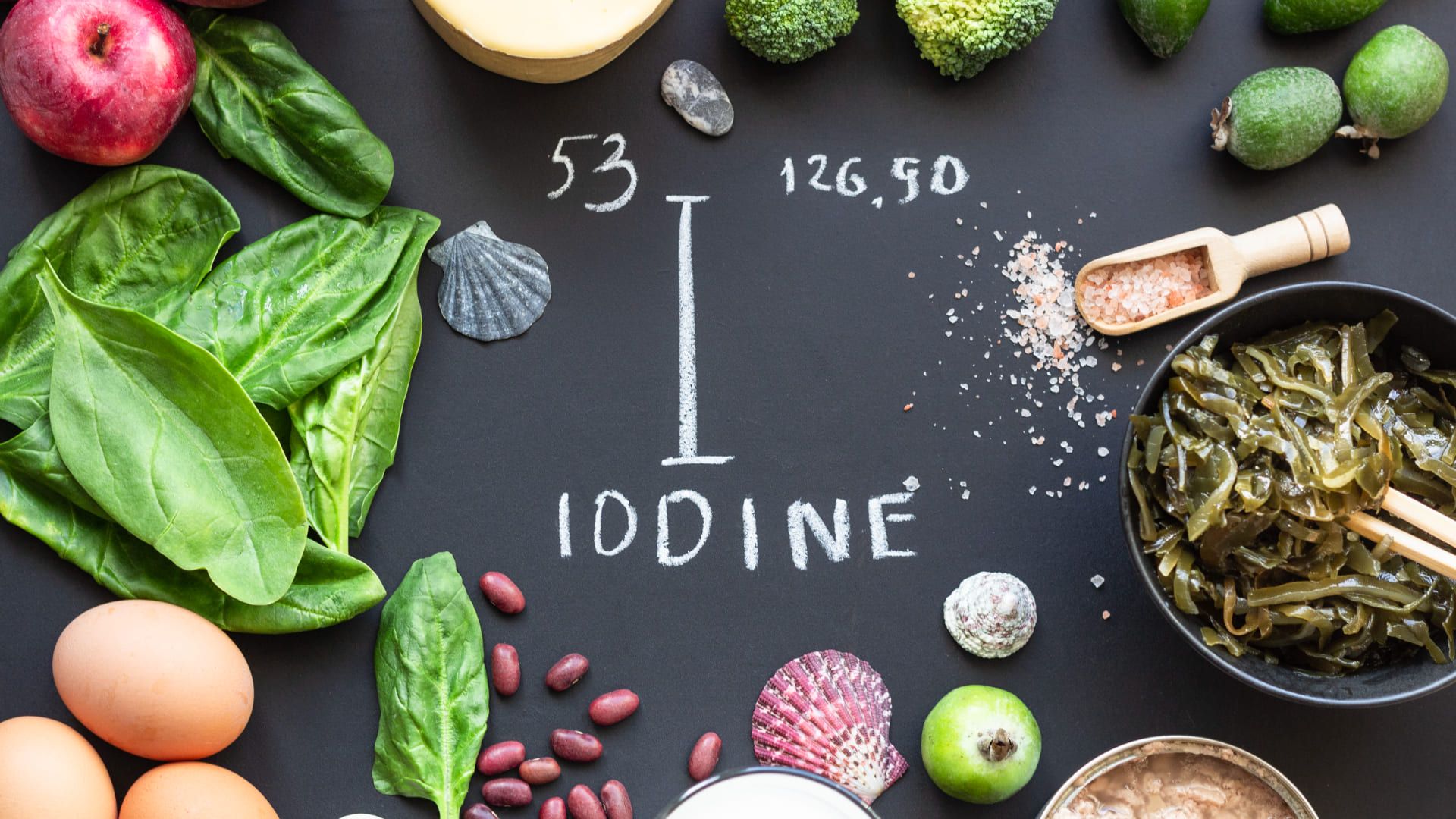Iodine An Essential Element During Pregnancy

Sarah Johnson, MD

Iodine is an important trace element that is abundant in saltwater and is particularly important for normal nervous system and cognitive function. The thyroid gland has a very high concentration of iodine.
According to ANSES, a pregnant woman needs 200–250 micrograms of iodine per day, but her non-pregnant intake is only 150 micrograms. According to French epidemiological studies, ioduria of less than 100 micrograms per liter was present in 80% of pregnant women. As a result, the majority of them are iodine deficient.
What is the role of iodine during pregnancy?
Iodine is necessary for a fetus's and young child's healthy neurological development, according to the World Health Organization. The fetus is entirely dependent on the thyroid hormones of its mother during the first few months of life. It need iodine in order to develop and make thyroid hormones on its own, which are crucial for the development of its neurosensory system. From the second month of pregnancy onwards, nervous tissue starts to form, and a severe iodine deficit can have permanent repercussions on the development of the child's brain.
Additionally, iodine helps the mother's thyroid work properly. Related minerals important for pregnancy, such as calcium, are discussed in the role of calcium during pregnancy. In fact, the thyroid uses the iodine it receives from the diet and body to make the thyroid hormones (thyroid hormone T4 and triodothyronine, or hormone T3). Thus, a deficit in iodine can impede the synthesis of these hormones.
Thus, iodine is beneficial for the thyroid, the neurological system, and the mother's and child's cognitive development. It's crucial to make sure you don't run out of iodine while you're pregnant because of this.

An increased need for iodine during pregnancy.
The thyroid gland's activity naturally rises during pregnancy. Beginning in the second trimester of pregnancy, the placenta and amniotic fluid mobilize a tiny amount of iodine. Pregnant women therefore have higher iodine demands. Guidance on balancing diet and supplementation is outlined in nutrition vs supplements during pregnancy. Furthermore, note that you have a higher chance of being iodine deficient if you are vegetarian, expecting twins, have closely spaced pregnancies, or have a known thyroid issue.
What are the consequences of an iodine deficiency or excess?
Maternal hypothyroidism, which is defined by inadequate thyroid hormone production, can result from a severe iodine deficiency. Hypothyroidism symptoms can include constipation, dry hair and skin, memory and attention issues, extreme exhaustion, weight gain, sensitivity to cold, and constipation. Stress may intensify some of these sensations, and quick techniques to manage it are outlined in how to relieve stress quickly.
Increased creatinine in the urine is another sign of iodine insufficiency that can be utilized as a diagnostic tool.
Iodine shortage during pregnancy can result in developmental and physical impairments in the developing fetus. Broader dietary influences on fetal outcomes are described in how a pregnant woman’s diet affects fetal development. Research has indicated that offspring born to moms deficient in iodine may exhibit reduced cognitive function and IQ.
Keep in mind that iodine deficiency can lead to issues with fertility in women.
On the other hand, a baby's intellectual development may suffer from an excessive iodine consumption, which may potentially result in congenital hypothyroidism.
Never hesitate to speak with medical specialists who can recommend a routine blood test to determine whether or not iodine supplementation is required.
Where to find iodine in your diet?
To boost your iodine capital, we suggest that you begin forming healthy eating habits before to becoming pregnant, or during preconception. Emotional well-being can also influence dietary consistency, as explored in emotional safety. There are two complimentary solutions for this:
- Choose tiny or marine fish, such as sardines, well-cooked shellfish, and seaweed, to maintain a balanced diet. Dairy products and eggs are also great sources of iodine. Regarding veggies, we concentrate on iodine-dense meals like watercress and spinach.
- Additionally, the WHO advises expecting moms to take iodized salt on a daily basis. Consult our complimentary special Pregnancy and Nutrition Ebook for additional guidance on creating more mindful dishes.
- Select high-quality dietary supplements, like our pregnancy multivitamins, that will meet your demands and enable you to build up your reserves. Administering iodine supplements prudently and under a healthcare provider's supervision is advised.
- Moreover, it is crucial to often check on the thyroid function of expectant mothers, particularly if iodine supplements are being prescribed.
What is the origin of the iodine present in BOOME pregnancy vitamins?
Our natural source of iodine is fucus, a multipurpose algae. Our iodine, which is naturally occurring in our multivitamin, is absorbed by the body immediately. To extract the greatest vitamins, minerals, and trace elements necessary for the seamless operation of pregnancy and all of its stages, we have preferred using real ingredients. Some women also find value in tracking emotional patterns during pregnancy with tools like Mental Health AI.














